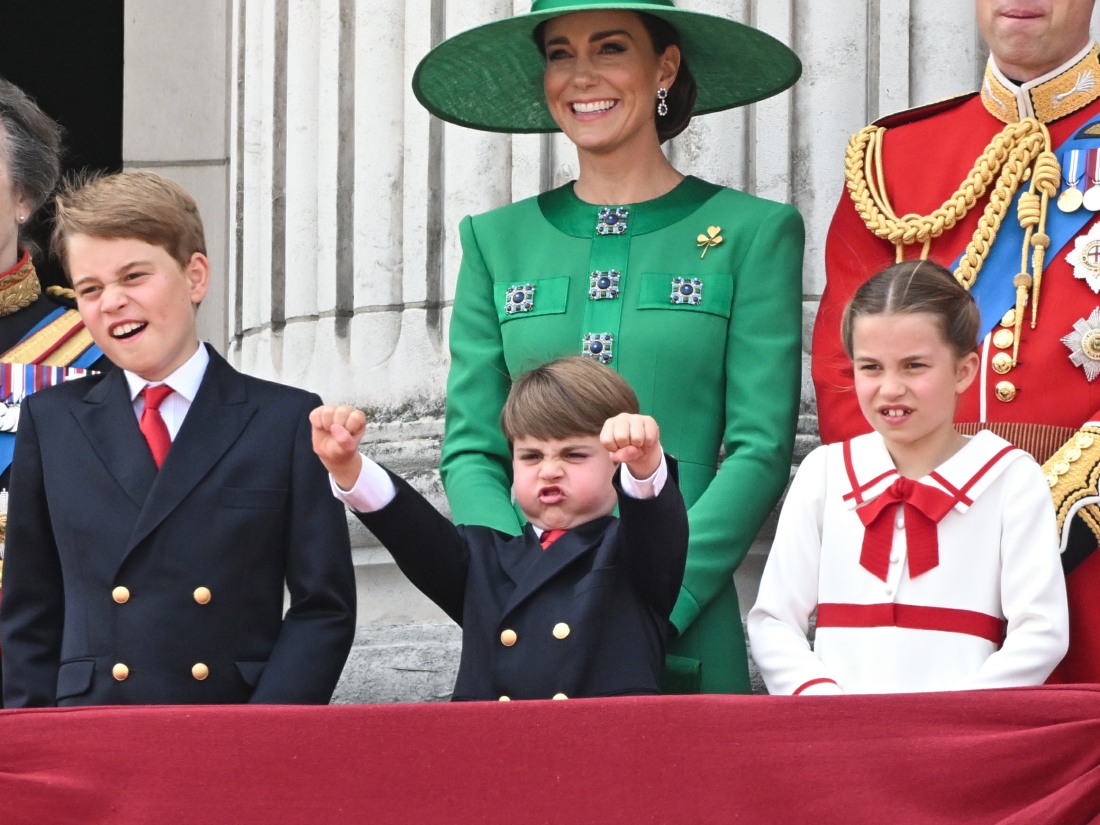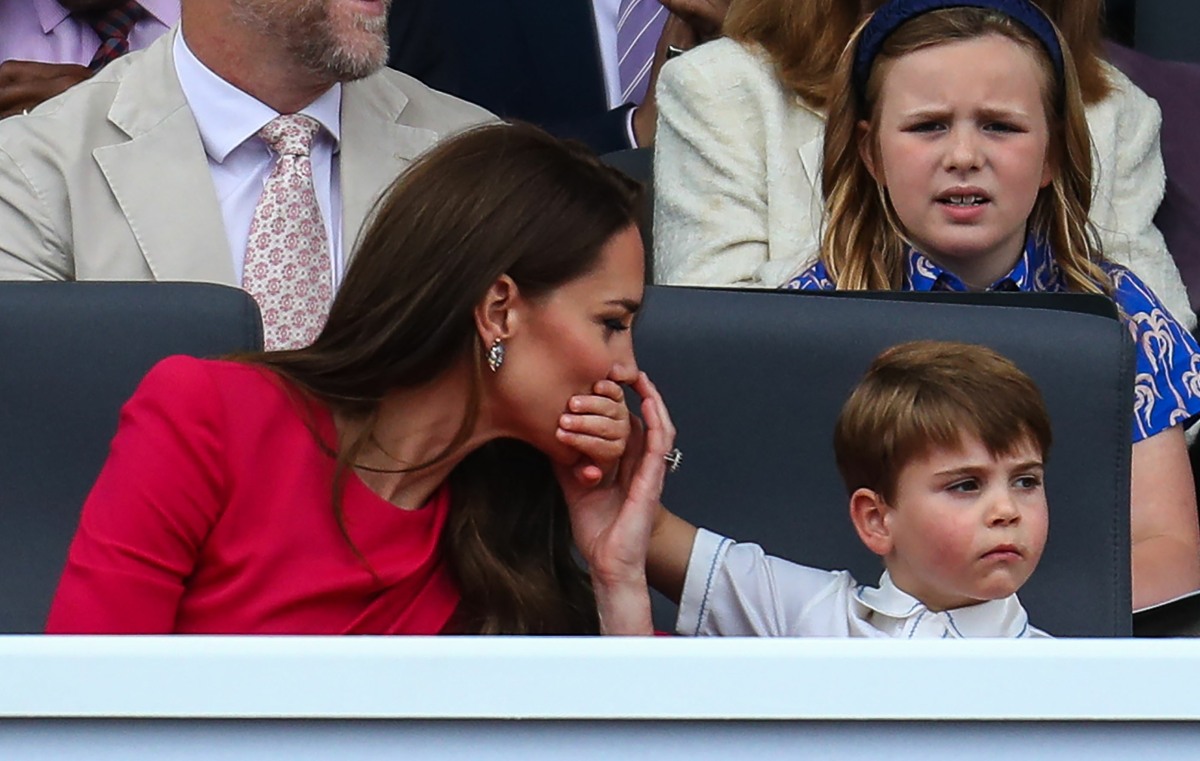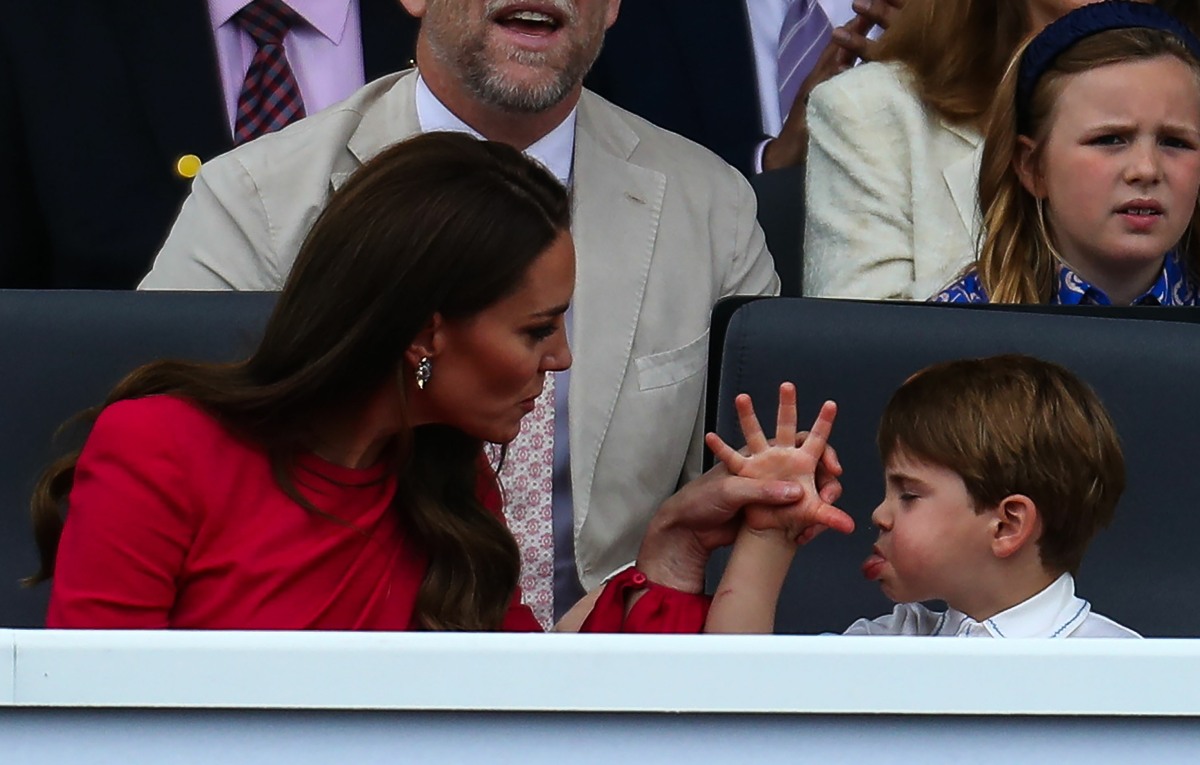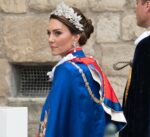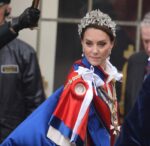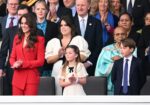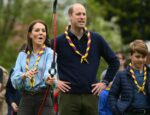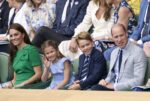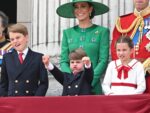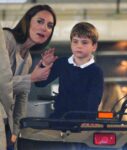[ad_1]
Vanity Fair recently published a piece called “From Handshakes Instead of Hugs to Prince Louis’s Adorable Antics: The Peculiar History of Royal Parenting.” I thought it was just going to be praise for Prince William and Kate for not being sh-tty parents like so many of William’s ancestors, because the bar is (as always) in hell for the Windsors. Much of the article is just that, but there are some interesting stories about how royals all around the world, throughout history, have always been awful parents. King Charles is even criticized, not for being a dogsh-t father (it’s true) but for having the kind of childish arrested development typical of people sent off to boarding school. Some highlights:
The royal absentee parent: “Royal parents traditionally had nothing to do with their children’s day-to-day care when they were very young—George V, the late Queen’s grandfather, once saw a maid pushing a pram along a corridor at Buckingham Palace,” Tom Quinn, author of Gilded Youth: A History of Growing Up in the Royal Family, tells Vanity Fair. “He said to the maid: ‘Whose baby is that?’ The maid replied, ‘It’s yours, sir.’”
Royal children were sent off to become mini-adults: “In medieval times, royal princes and princesses were sent away aged just eight or nine to live in other aristocratic households—the idea was to make the child into an adult as soon as possible,” Quinn says. “The modern version of this is the royal obsession with boarding schools: sending princes and princesses to schools where they live and work 24/7 and only return home every couple of months. The royal obsession with making princes and princesses as mature as possible as early as possible actually has the opposite effect and many royal children (especially boys) never really grow up. They behave like children when they grow up because they were not allowed to be children when they were young. This applies to Edward VII, George V and VI, Edward VIII, and especially King Charles.”
QEII was a cold & distant mother: “Elizabeth…inherited the idea that the young Charles and Anne must be looked after by nannies and governesses—they had nothing to do with Charles’s and Anne’s daily routine when they were babies,” Quinn writes. “All the work was done by paid staff and Elizabeth and Philip saw their children just once each day for a very formal meeting. One member of staff told me that, ‘Queen Elizabeth would no more visit the nursery than fly—instead we took the children to see her each day.’”
Princess Diana shook things up: In many ways, she started a royal parenting revolution that was adopted by many European ruling houses. She was demonstratively affectionate in private and public, took them to McDonald’s and amusement parks, and made sure many harsher aspects of royal life were not imposed on “her boys.” It is a legacy of involvement her sons are attempting to follow, expand, and refine (no McDonald’s for Kate’s children Prince George, Princess Charlotte, and Prince Louis).
Middle-class Kate: “William and Kate—but especially Kate—are determined to do things differently,” Quinn says. “William was brought up partly by Charles (who was embarrassed by physical affection) but also by Diana who loved to hug her children. But despite their slightly more modern outlook, both Charles and Diana still relied on paid staff—nannies—to do most of the work. Old habits die hard!”
Will & Kate are still restricted in how much control they have over their children’s lives. According to Quinn, when William and Kate discussed sending their children to state schools, there was pushback from “The Firm.” And the family still has a huge staff, including super nanny Maria Teresa Turrion Borrallo. “When [Kate] demurred and suggested she would like to do a little more the nitty-gritty part of the childcare,” Quinn writes in Gilded Youth, “it was made very clear to her that this was best left to the professionals, and Kate is nothing if not obedient to the rules of life in the royal family.”
Prince Louis’s antics. “Old school royal parents would have felt Louis’s behaviour was undignified for a royal child of any age,” says Quinn, “because elements of the old obsession with royal princes behaving like adults even when they are still children still persists, but Kate and William are acutely aware of how much good publicity comes from having a charming child!”
“It was made very clear to her that this was best left to the professionals, and Kate is nothing if not obedient to the rules of life in the royal family…” LOL. You guys, Kate HAS to employ a big household staff, because the Windsors dictated that to her! Please. While I agree that Kate changed up the royal-parenting rules (much like Diana), let’s also be clear – Kate wishes she could have even more staff. And a bigger house. And a husband who viewed her as something more than his children’s main childcare provider. “Kate and William are acutely aware of how much good publicity comes from having a charming child.” More like Kate and William use the children as buffers and distractions from their own bullsh-t.
Photos courtesy of Avalon Red, Cover Images, Instar.
-
Not Available For Publication In The UK – London, UK -20220605-
The Platinum Jubilee Celebrations Final Day
-PICTURED: Catherine Duchess of Cambridge, Prince Louis
-PHOTO by: John Rainford/Cover Images/INSTARimages.com
-51634964.jpgThis is an editorial, rights-managed image. Please contact Instar Images LLC for licensing fee and rights information at sales@instarimages.com or call +1 212 414 0207 This image may not be published in any way that is, or might be deemed to be, defamatory, libelous, pornographic, or obscene. Please consult our sales department for any clarification needed prior to publication and use. Instar Images LLC reserves the right to pursue unauthorized users of this material. If you are in violation of our intellectual property rights or copyright you may be liable for damages, loss of income, any profits you derive from the unauthorized use of this material and, where appropriate, the cost of collection and/or any statutory damages awarded
-
Not Available For Publication In The UK – London, UK -20220605-
The Platinum Jubilee Celebrations Final Day
-PICTURED: Catherine Duchess of Cambridge, Prince Louis
-PHOTO by: John Rainford/Cover Images/INSTARimages.com
-51635021.jpgThis is an editorial, rights-managed image. Please contact Instar Images LLC for licensing fee and rights information at sales@instarimages.com or call +1 212 414 0207 This image may not be published in any way that is, or might be deemed to be, defamatory, libelous, pornographic, or obscene. Please consult our sales department for any clarification needed prior to publication and use. Instar Images LLC reserves the right to pursue unauthorized users of this material. If you are in violation of our intellectual property rights or copyright you may be liable for damages, loss of income, any profits you derive from the unauthorized use of this material and, where appropriate, the cost of collection and/or any statutory damages awarded
-
Not Available For Publication In The UK – London, UK -20220605-
The Platinum Jubilee Celebrations Final Day
-PICTURED: Catherine Duchess of Cambridge, Prince Louis
-PHOTO by: John Rainford/Cover Images/INSTARimages.com
-51634967.jpgThis is an editorial, rights-managed image. Please contact Instar Images LLC for licensing fee and rights information at sales@instarimages.com or call +1 212 414 0207 This image may not be published in any way that is, or might be deemed to be, defamatory, libelous, pornographic, or obscene. Please consult our sales department for any clarification needed prior to publication and use. Instar Images LLC reserves the right to pursue unauthorized users of this material. If you are in violation of our intellectual property rights or copyright you may be liable for damages, loss of income, any profits you derive from the unauthorized use of this material and, where appropriate, the cost of collection and/or any statutory damages awarded
- Catherine, Duchess of Cambridge, and Prince Louis watch the Platinum Pageant from the Royal Box on the final day of the Platinum Jubilee celebrations in London.,Image: 697183096, License: Rights-managed, Restrictions: -, Model Release: no, Credit line: Stephen Lock / Avalon
- William – The Prince of Wales and Catherine – The Princess of Wales arrive for the Coroation at Westminster Abbey, London, England, UK on Saturday 6 May, 2023.,Image: 774187119, License: Rights-managed, Restrictions: Please credit photographer and agency when publishing as Justin Ng/UPPA/Avalon., Model Release: no, Credit line: Justin Ng / Avalon
- Prince William, Prince of Wales, Catherine, Princess of Wales, Prince George, Prince Louis and Princess Charlotte on the balcony of Buckingham Palace after their Coronation in London, United Kingdom, on 06 May 2023.,Image: 774233342, License: Rights-managed, Restrictions: -, Model Release: no, Credit line: Ian Vogler / Avalon
- The Princess of Wales at The Coronation of King Charles III at London”s Westminster Abbey 06 May 2023,Image: 774252025, License: Rights-managed, Restrictions: -, Model Release: no, Credit line: Mark Stewart / Avalon
- WINDSOR, ENGLAND – MAY 07: (L-R) Catherine, Princess of Wales, Princess Eugenie, Princess Charlotte of Wales and Prince George of Wales during the Coronation Concert on May 07, 2023 in Windsor, England. The Windsor Castle Concert is part of the celebrations of the Coronation of Charles III and his wife, Camilla, as King and Queen of the United Kingdom of Great Britain and Northern Ireland, and the other Commonwealth realms that took place at Westminster Abbey yesterday. High-profile performers will entertain members of the royal family and 20,000 guests including 10,000 members of the public.,Image: 774495357, License: Rights-managed, Restrictions: , Model Release: no, Credit line: Leon Neal / Avalon
- Watched by Britain’s Prince William, Prince of Wales (centre right) and Britain’s Prince George of Wales (R), Britain’s Catherine, Princess of Wales, tries her hand at archery while taking part in the Big Help Out, during a visit to the 3rd Upton Scouts Hut in Slough, west of London on May 8, 2023, where the family joined volunteers helping to renovate and improve the building. – People across Britain were on Monday asked to do their duty as the celebrations for King Charles III’s coronation drew to a close with a massive volunteering drive.,Image: 774584555, License: Rights-managed, Restrictions: , Model Release: no, Credit line: DANIEL LEAL / Avalon
- William Prince of Wales, Kate Princess of Wales, Prince George and Princess Charlotte in the royal box during the mens’ finals on Day 14 at the 2023 Wimbledon Championships at the All England Club, London, UK, 16 July 2023,Image: 789501816, License: Rights-managed, Restrictions: World Rights, Model Release: no, Credit line: Peter van den Berg / Avalon
-
On the balcony of Buckingham Palace, London, to view the flypast following the Trooping the Colour ceremony in central London, as King Charles III celebrates his first official birthday since becoming sovereign.
Featuring: Prince George, Catherine, Princess of Wales, Prince Louis, Princess Charlotte
Where: London, United Kingdom
When: 17 Jun 2023
Credit: PA Images/INSTARimages**NORTH AMERICA RIGHTS ONLY**
-
The Princess of Wales with Prince Louis during a visit to the Royal International Air Tattoo (RIAT) at RAF Fairford, Gloucestershire.
Featuring: Catherine, Princess of Wales with Prince Louis
Where: Fairford, United Kingdom
When: 14 Jul 2023
Credit: PA Images/INSTARimages**NORTH AMERICA RIGHTS ONLY**
[ad_2]
Source link

